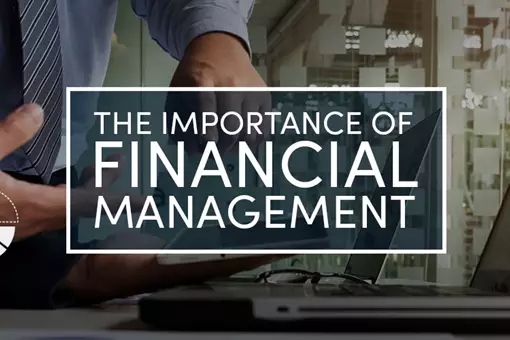10 Strategies for Effective Tenant Management
Managing tenants effectively is crucial for property managers, especially in a diverse and dynamic rental market like New Jersey. With its mix of urban and suburban areas, New Jersey presents unique challenges and opportunities for landlords. Effective tenant management not only ensures smooth property operations but also enhances tenant satisfaction and retention. This article explores key strategies for successful tenant management, tailored to the specific needs of New Jersey property managers.
1. Thorough Tenant Screening
Thorough tenant screening is the foundation of effective tenant management. By selecting reliable and responsible tenants, you can minimize issues such as late payments, property damage, and tenant turnover. Begin the screening process by requiring potential tenants to complete a detailed rental application. Verify their employment and income, conduct background and credit checks, and contact previous landlords for references. Comprehensive screening helps ensure that you choose tenants who will respect your property and fulfill their lease obligations, thereby reducing the risk of future problems.
2. Clear and Detailed Lease Agreements
A clear and detailed lease agreement is essential for protecting both the landlord and the tenant. The lease should outline all terms and conditions, including the rent amount, due date, security deposit, maintenance responsibilities, and policies on pets and subletting. It’s also important to address any specific regulations or requirements unique to New Jersey. Consulting with a legal expert can help you draft a robust lease agreement that complies with state laws and reduces the risk of disputes. A well-drafted lease provides clarity and sets expectations, fostering a positive landlord-tenant relationship.
3. Utilize Standard Rental Application Forms
Understanding and complying with New Jersey’s rental application requirements is crucial for legal and successful property management. Using standardized NJ Rental Application forms helps ensure compliance with state-specific regulations. These forms typically include necessary disclosures and authorizations, such as consent for background and credit checks. Adhering to these requirements not only protects you legally but also ensures a transparent and fair application process for potential tenants. Standardized applications provide consistency in tenant screening, helping you select the best candidates for your property.
4. Effective Communication Channels
Effective communication is key to successful tenant management. Clear and consistent communication helps build trust and ensures that tenants feel valued and heard. Establish open lines of communication from the start, using methods such as email, phone, or property management apps. Respond promptly to tenant inquiries and maintenance requests, and keep them informed about any changes or important updates. Regular check-ins can also help address issues before they escalate, fostering a positive landlord-tenant relationship and promoting tenant retention.
5. Prompt Maintenance and Repairs
Timely maintenance and repairs are crucial for maintaining the condition of your rental properties and ensuring tenant satisfaction. Neglecting maintenance requests can lead to larger, more costly problems and tenant dissatisfaction. Create a system for handling maintenance requests efficiently, whether through a property management app or a dedicated hotline. Regularly schedule routine maintenance tasks to prevent issues from arising. Promptly addressing maintenance concerns not only preserves the value of your property but also demonstrates your commitment to providing a safe and comfortable living environment for your tenants.
6. Regular Property Inspections
Regular property inspections are essential for maintaining the condition of your rental properties and ensuring compliance with lease agreements. Inspections help identify maintenance issues early, preventing costly repairs and preserving property value. Schedule inspections at least twice a year and provide tenants with adequate notice. During inspections, check for signs of wear and tear, safety hazards, and lease violations. Document your findings and address any issues promptly. Regular inspections demonstrate your commitment to property upkeep and tenant safety, fostering a positive relationship with tenants.
7. Fair and Transparent Rent Collection
Consistent and transparent rent collection policies are essential for maintaining financial stability and building trust with your tenants. Establish clear guidelines for rent payment, including due dates, accepted payment methods, and late fee policies. Communicate these guidelines to tenants at the start of their lease and provide reminders as needed. Utilizing online payment platforms can streamline the rent collection process, making it convenient for tenants to pay on time. Transparent rent collection procedures ensure that both parties understand their financial obligations, reducing the likelihood of disputes and fostering a positive landlord-tenant relationship.
8. Addressing Tenant Complaints and Concerns
Taking tenant complaints and concerns seriously is crucial for maintaining a positive living environment and tenant satisfaction. Develop a system for logging and addressing complaints promptly and fairly. Whether the issue involves noise complaints, maintenance problems, or neighbor disputes, handle each situation with empathy and professionalism. Providing timely resolutions to tenant concerns demonstrates that you value their well-being and are committed to maintaining a high standard of living in your properties. This proactive approach can enhance tenant retention and minimize conflicts.
9. Implementing a Tenant Retention Strategy
Retaining good tenants is often more cost-effective than finding new ones. A proactive tenant retention strategy can help keep reliable tenants satisfied and willing to renew their leases. Strategies include offering lease renewal incentives, conducting regular check-ins, and addressing any issues promptly. Personal touches, such as sending holiday cards or small gifts, can also make tenants feel valued and appreciated.
10. Utilizing Property Management Software
Property management software can significantly streamline your operations and improve efficiency. These platforms offer a variety of tools to help you manage everything from tenant communications and maintenance requests to financial records and rent collection. Key features to look for include automated reminders, online portals for tenants, and robust reporting capabilities. Property management software can save time, reduce errors, and enhance the overall tenant experience. By leveraging technology, you can manage your properties more effectively and provide better service to your tenants.
Conclusion
Effective tenant management is the key to a successful rental business. By implementing these strategies, property managers can create a positive living environment and ensure the smooth operation of their properties. These tips not only enhance tenant satisfaction but also contribute to the long-term success and profitability of the rental business. Proactive and informed tenant management practices empower property managers to navigate the complexities of the rental market and achieve sustained growth and success.
Stay in touch to get more updates & news on Discover Tribune!






